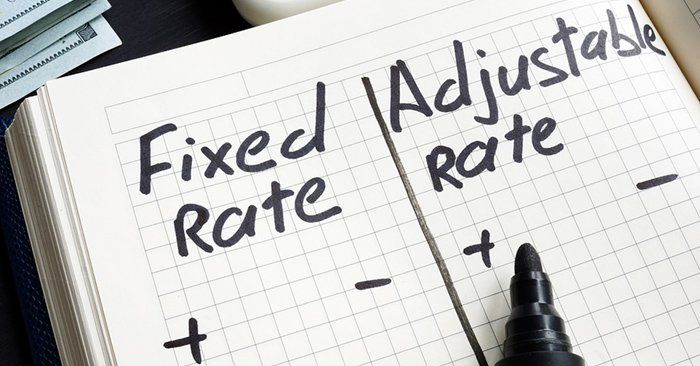With Mortgage Rates Rising, Is an Adjustable Rate Right for You?

You’re probably well aware that mortgage rates are rising. At the same time, home prices don’t seem to be coming down, there’s still a ton of competition, and you’re probably no stranger to bidding wars when you make an offer on a house.
So you might be searching for a way to maintain the buying power you had when rates were a little lower, or just a competitive edge so you can offer a little more for the houses you bid on.
Which means you’ve probably been reading or hearing about adjustable rate mortgages making a comeback.
They haven’t been getting much attention for quite some time. The 30-year fixed rate mortgage has been so historically low, they haven’t been all that necessary to consider. But with the mix of rates going up, low inventory, and stiff competition, buyers are sizing them up as an option.
The last time they were popular was prior to the real estate market bubble bursting in 2007. Leading up to it, people were taking on riskier mortgages just to be able to afford a house. So you wouldn’t be out of line to stop and wonder if taking an adjustable rate mortgage could lead to trouble.
A difference is, back in 2007 and the years leading up to it, banks had been lax in their lending standards, and much of the market was affected by what is known as “subprime” mortgages. To put it simply, they were risky mortgages given to people who probably weren’t going to be able to afford the loans they were taking on. It wasn’t adjustable rate mortgages that were the actual problem, so much as it was careless lenders giving many different types of risky mortgages to people who just weren’t qualified.
The truth is, an adjustable rate mortgage can lead to trouble. But, it can also be a smart choice.
If you decide to apply for an adjustable rate mortgage, ideally your mortgage rep and underwriters will properly assess your situation and advise you as to whether or not you should go that route. But the reality is, you need to go into it eyes wide open and think for yourself as well. So here are some things to consider and help you decide if an adjustable rate mortgage is a smart choice for you:
- Adjustable rate mortgages do just that…they adjust. So your rate isn’t fixed for the life of the loan. Which means your payment will adjust, and you should bank on it adjusting up when it does, not down.
- Find out when your rate can be adjusted. Most often the rate is fixed for 5 years, but you can also find ones that adjust after 3, 7, 10, 15 (or any other number of) years.
- Consider how long you plan on staying in the house. For instance, if you take a 10-year ARM, but plan on moving in five years, then the rate change in ten years won’t affect you.
- Find out how much it can adjust, and how often, once the fixed rate period is over.
- Crunch the numbers and analyze if the risk to you is worth the savings a fixed rate mortgage would provide. Are you saving tens of dollars per month, or hundreds? How much will that monthly savings amount to over the entire term of the loan? Is it worth the savings versus the risk? There’s no one-size-fits-all answer; just make sure the savings and benefits outweigh the risks for you and your situation.
- Don’t use it as a tool to buy beyond your means. Again, ideally the bank won’t lend you money you can’t handle paying back, but ultimately it’s your responsibility to know what you can and can’t handle. Base your decision upon the highest rate your loan and payment could be in the future, knowing you could handle it when the time comes.
- Be especially careful if you’re buying with a low down payment. You will have less equity if the payments become too high to handle and you want or need to sell. If home values haven’t gone up, or have gone down, you could be stuck trying to pay a mortgage that stretches you each month, or facing a short sale or foreclosure if you can’t manage to pay it.
- While you can possibly refinance out of an adjustable rate mortgage to a fixed rate one at some point if and when rates go down, approach it as if you can’t or won’t be able to refinance, because you never know if rates or your situation will allow for it in the future.
The Takeaway:
An adjustable rate mortgage may be the right choice to help lower your monthly payments, help maintain your buying power amidst rising rates, and / or give you a competitive edge against other offers. They can be risky, but they can also be the perfect choice for you if you know what you’re getting into and weigh the risks versus the advantages. Just make sure to give it a good amount of thought before signing on the dotted line.
Share this post




